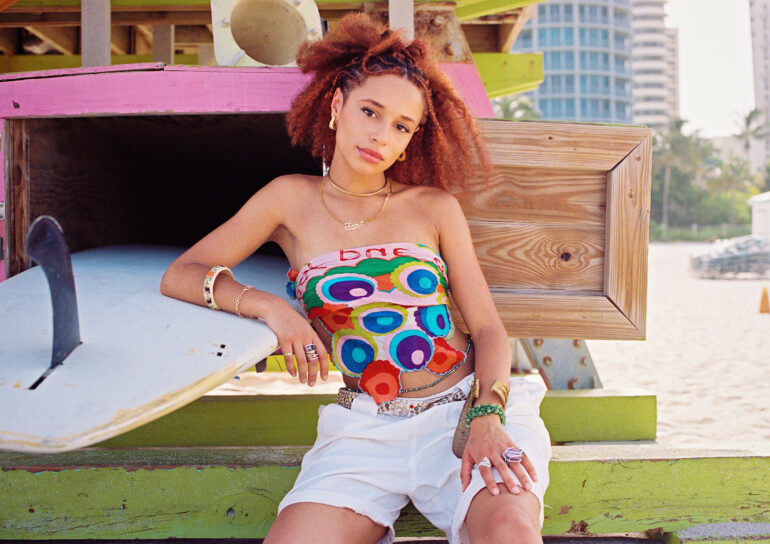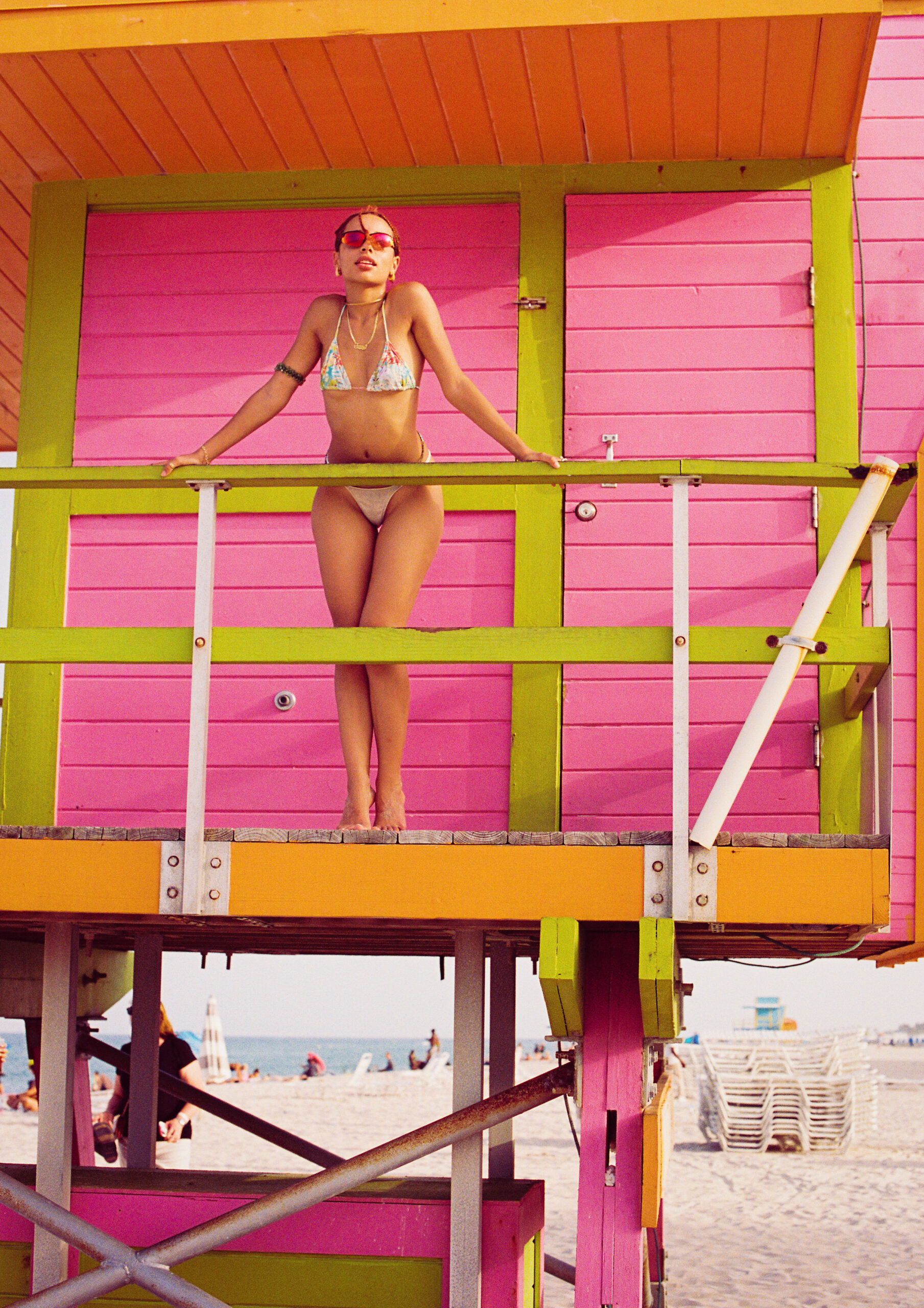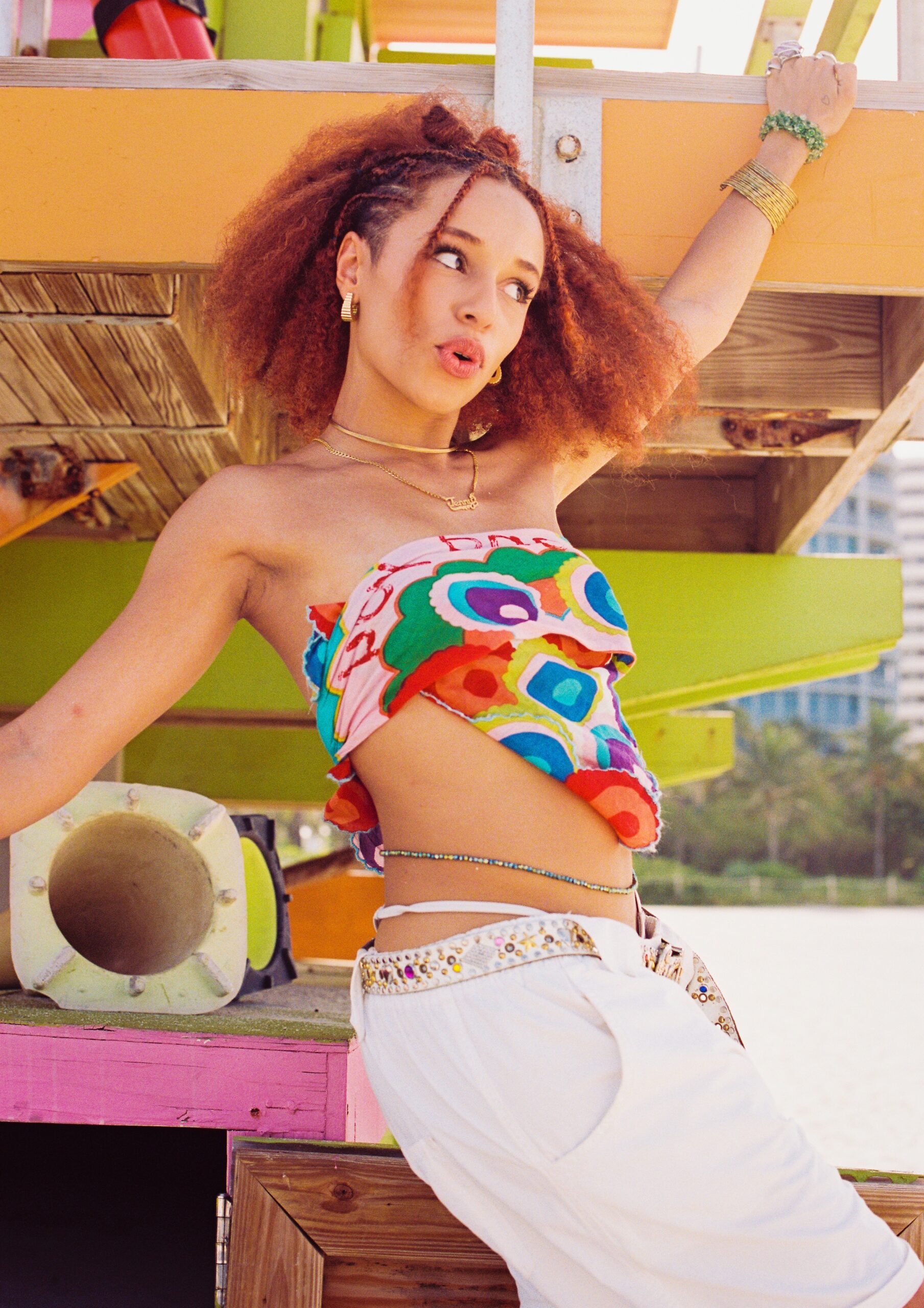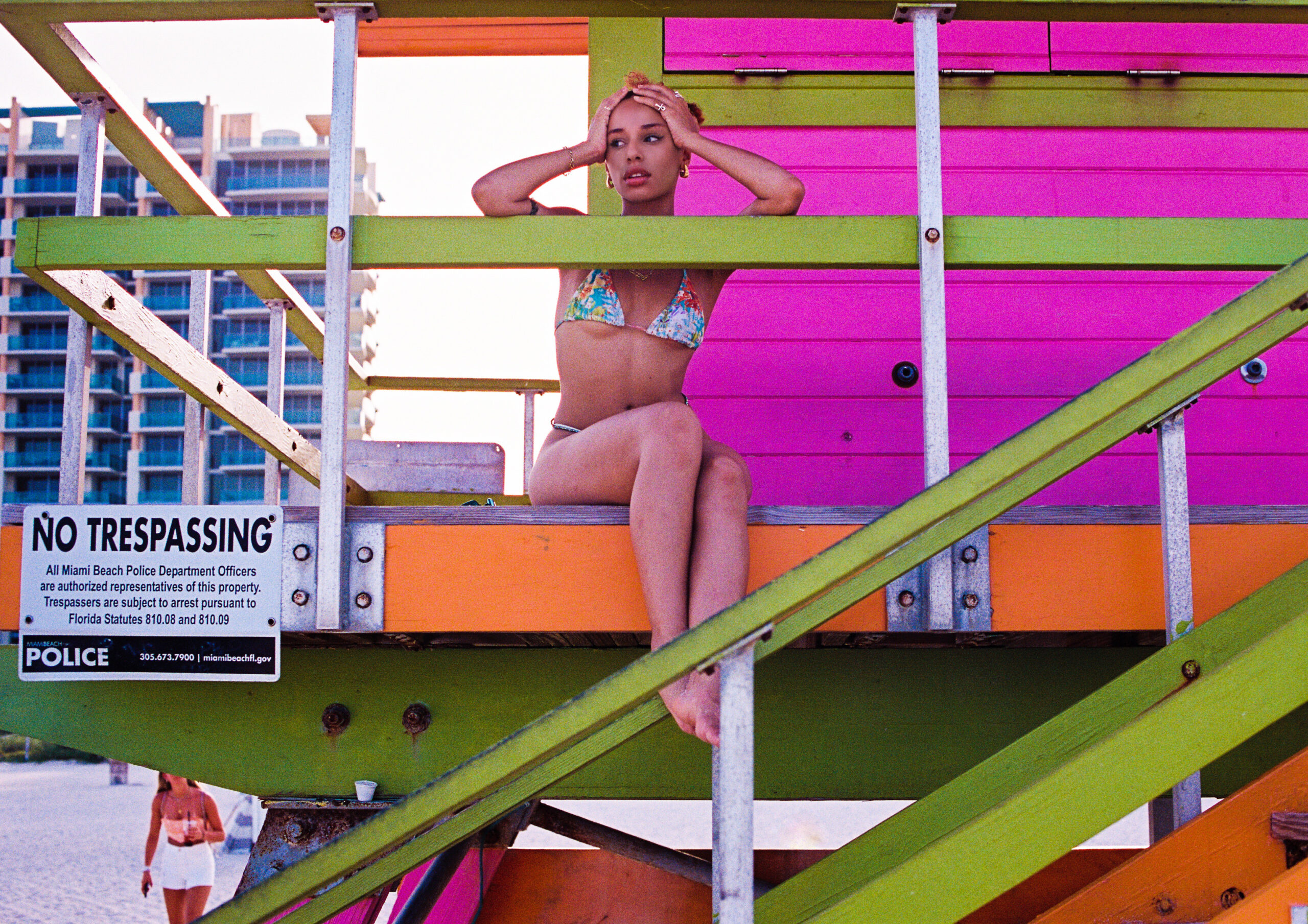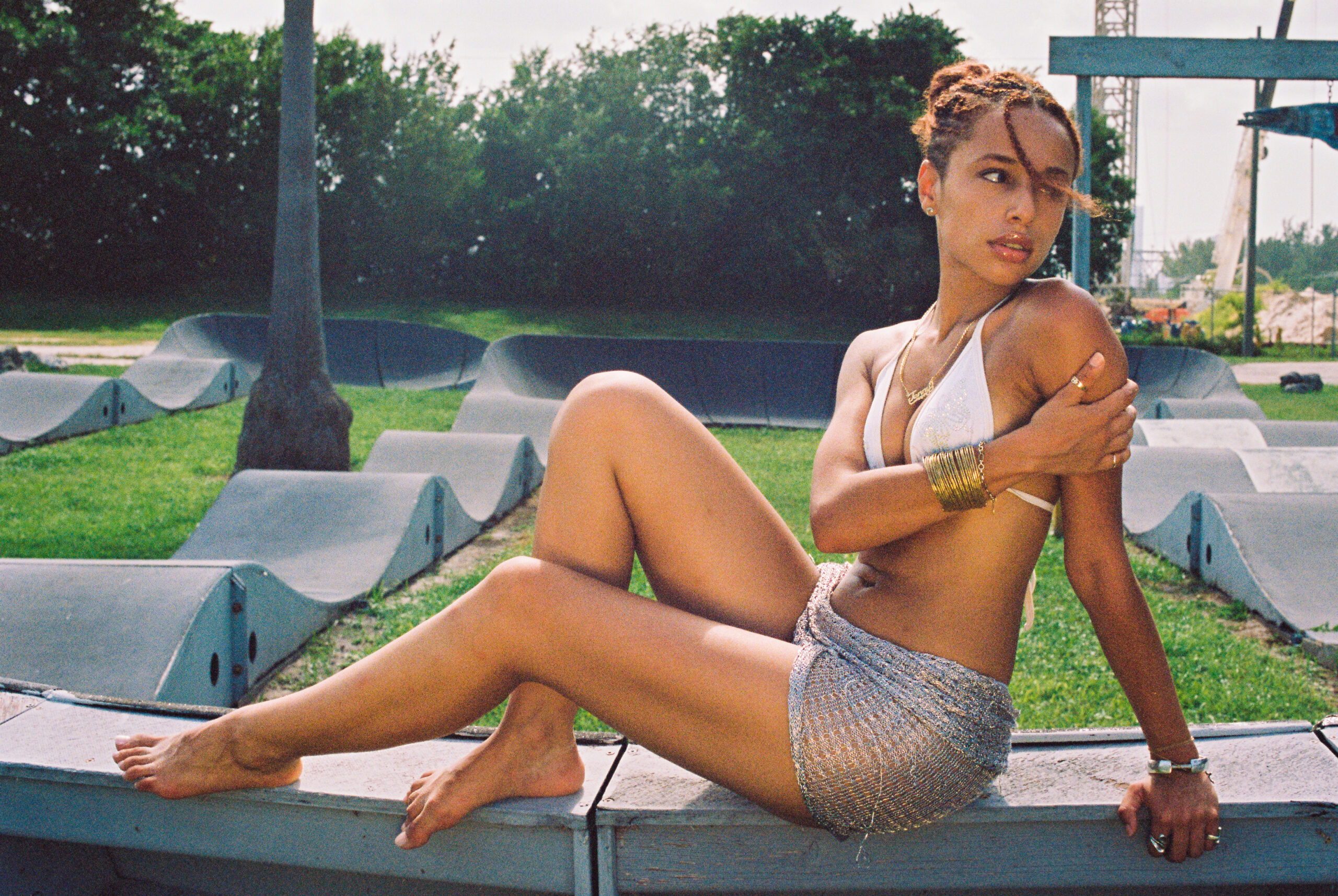In this interview with the singer and model Lua De Santana, coming straight up form Galicia and Bahia, we’re discussing her career path that began in high school to the behind the scenes of her new released song PiRi PiRi.
Marie : Upon my research I’ve seen that you came from a city in Brazil called Bahia, and that you went there in September after 7 years without going there to celebrate your birthday. Could you tell our audience how is life in Brazil?
I was actually born here in Spain. This recent visit after seven years was significant and I wish I could go more frequently. The reunion with my family was truly special. I missed them a lot, and the journey allowed me to reconnect with my “home” again. It’s undoubtedly different from Spain, considering the distinctions in people, culture, food, and even religious/spiritual diversity.
Marie : How would you describe the music scene in Brazil?
The music scene, especially in Bahia, is incredibly rich due to a diverse of cultural influences stemming from our African ancestors. This has resulted in powerful and beautiful music. In terms of where the core for the “urban music” scene is, São Paulo and Rio de Janeiro are where you’ll find most of the new wave.
Marie : I noticed in your music, particularly in your debut single “PiriPiri,” that you seamlessly blend English and Portuguese lyrics. Can you share how this creative choice came about? Was it something that naturally emerged for you?
Mixing languages has always been a part of me. Being half Spanish, half Brazilian, raised in Galicia, and having lived in London, my music reflects a variety of influences that spontaneously surface during the creative process.
With “PiRi PiRi,” I was working on different demos in 2022, and two stood out—one with a soulful James Bond vibe, and another inspired by funk Mandelão. Combining them felt like a natural fit, and it was a great opportunity to powerfully introduce and showcase my capabilities with soulful English vocals, a funky Portuguese carefree register, and even with my production, creative direction and choreography of the music video – all self-made.
Marie : Your performance at Baile Madrid was captivating, and I am impressed to learn that you were involved in programming the choreography for the video clip. How did that creative process unfold?
Thank you so much! I choose to mix vogue elements with “passinhos”, etc that I had learn through years of formation and YouTube tutorials (laughs).
For the first half of then song, I was assisted by my good friend and professional dancer, Sestelo. His expertise helped ensure that the choreography made sense and provided valuable ideas into the more contemporary and classical aspects.
Marie : Your first EP was released five years ago entirely in English. When did you realize your passion for singing, and what influenced the decision to primarily sing in English?
I discovered my love for singing at a very young age—so young that I found a piece of paper from my childhood (6/7 years old) with aspirations of becoming a singer. Though I always had an affinity for the arts partly because of my dad, it wasn’t until around 14 or 15, after I was “caught” singing by my school classmates, when I seriously considered pursuing it and never looked back.
Marie : You mentioned your time in London. Could you share more about your experiences there? Did you take singing classes, or was it more about honing your natural talent?
My journey to London began at 16 years old with a summer camp, delving into singing and the music production with Ableton. After completing high school, I moved to London, earning a basic diploma in composition and singing, followed by a BA (hons) degree in Music Business Management while learning piano (jazz style) and to sing on the side.
During my time there, I experienced crazy things like being scouted by September Management – known for managing artists like Adele or Pa Salieu. And although I didn’t end up working with them, the experience fueled my determination to learn everything possible for future opportunities and curating my independence as an artist and business woman.
Marie : It’s admirable how challenges can motivate us to learn and grow. At 16, you already participated in a summer camp with production and singing. That’s quite remarkable.
The experience was an scape from personal struggles, and I discovered a sense of well-being in pursuing my passion and being alone. It laid the foundation for my musical journey. I like to think I strive for personal “perfection”.
Marie : You remind me a bit of FKA Twigs and Tyla. Are they some of your inspirations? Who inspires you to produce this type of music and everything?
Thank you!
I always draw inspiration from a bit of everything but my number 1 is Beyoncé, of course. I also love Chynna Roggers, Nina Simone, Daara J, Tinganá Santana, FKA Twigs, Cleo Sol, Pa Salieu, Aaliyah, MC Carol, Kelela… Then people like Alewya, Bree Runway and Doechii are to me some of the best new artists in the industry right now.
Marie : Maybe one day you will be on stage with them too. You never know.
I would love that!
Marie : I saw that on the 26th of January you had a showcase at Backstage Club Coruña and that you’ve already performed at Baile Madrid, where I was. How did it feel to perform on these prominent platforms?
It’s a challenge since I only have one song out, but I take every opportunity I can to get better. I’ve met a lot of great people, and it’s been sweet. The Coruña showcase was particularly special since it was close to my hometown so many friends attended. Mine’s was only the third live performance in the venue’s history, following La Veneno’s, which is ICONIC so I couldn’t been more honored!
Marie : How did you come up with the song PIRI PIRI? What do you want your listeners to be inspired by when they listen to it?
When I experiment, it often leads to something that sounds good. So, that’s mostly how I work.
PIRI PIRI was produced by the Basque duet, La Pócima, and started as a freestyle inspired by funk dos fluxos and Mamãe Da Putaria, a song produced by Heavy Baile and performed by MC Carol and Tati Quebra-barraco who is a reference for contemporary Brazilian funk.
I didn’t want to talk about things I haven’t experienced. I aimed to create something carefree but with a twist, reflecting my silly life here. The Portuguese part basically says if you’re gay, you’re welcome. If you can dance, even better. If you’re neither, please don’t bother. It’s meant to be fun and light-hearted, contrasting with the heavy introduction of the first soulful part, both in terms of the blue lyrics and vocals.
Marie : Are there any artists you’re keen on collaborating with?
I’d love to collaborate with Dave Hamelin, Moses, 070 Shake, Pa Salieu, Arca, Sampha, SZA, FLO and more.
Marie : Speaking of which, could you tell us a bit about your projects for this year?
I just announced my first ever (micro) tour “1 song out” where I’ll be performing across different cities in Spain, also in Tampa FL, USA and Leira, Portugal along with other artists that I admire and love like Sadboi and Kinara. I couldn’t be more excited and grateful!
Also I have a song coming out soon, and I’m excited about larger live performances with my band. There’s a extensive project coming out in a year; and I have tones of unreleased music in my PC. I’m also looking forward to international collaborations.
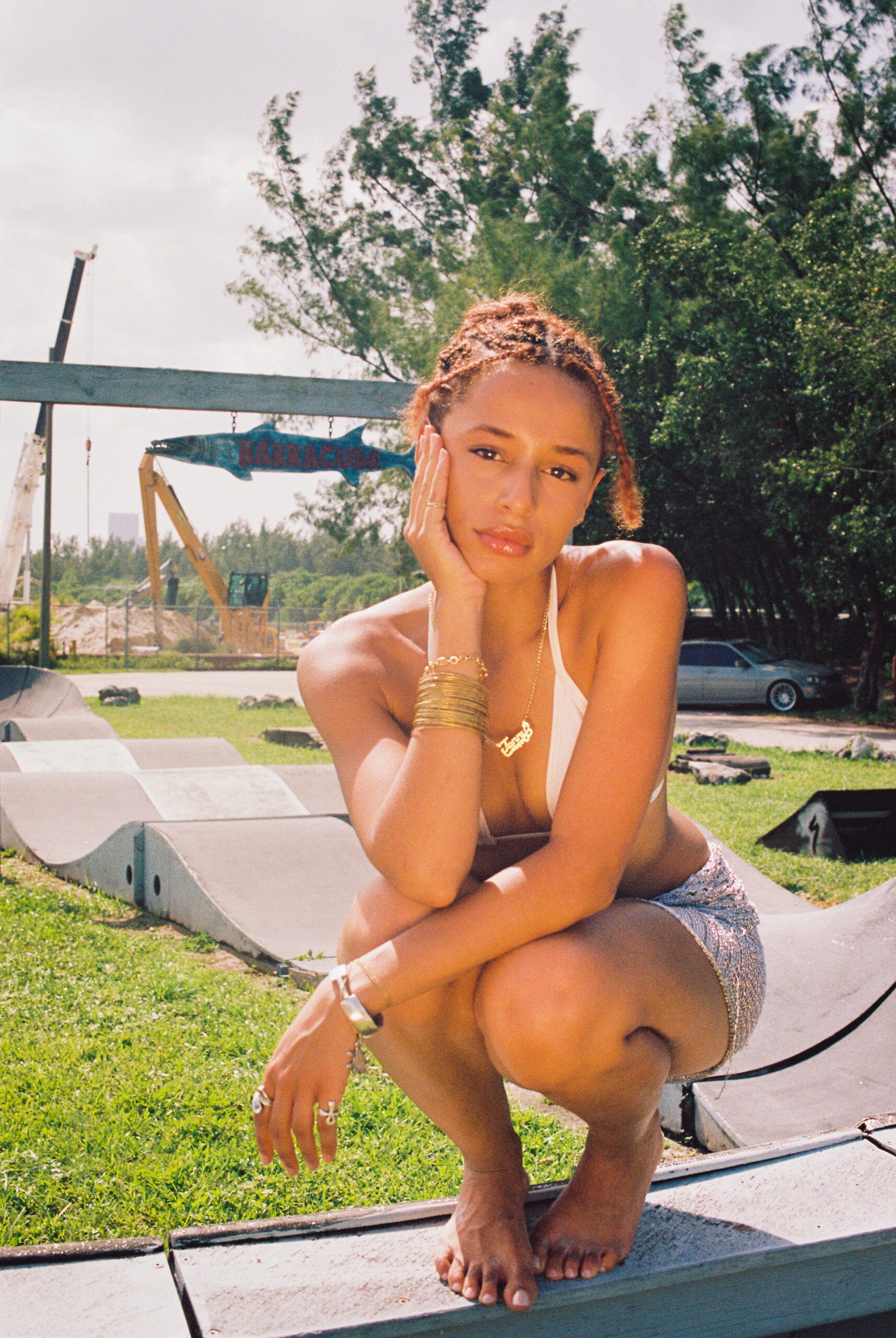 Marie : Where do you see yourself in five years?
Marie : Where do you see yourself in five years?
Hopefully in stadiums, with a more established career, loyal individuals who understand my craft and with at least an album out. I’d love to go deeper in music, diversify into fashion and acting, and continue learning to expand my overall knowledge and life experience on Earth.
Marie : Lastly, what does true urban culture mean to you?
Representation of what’s really going on in the cities across the globe, giving the spotlight to the minorities who really started, influenced and/or created what’s next. The blueprint.
Pictures by Jennifr Herrera @jennifr.g



